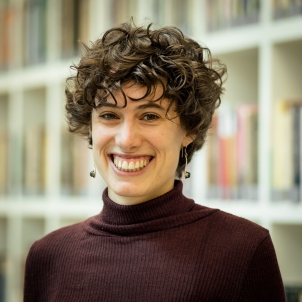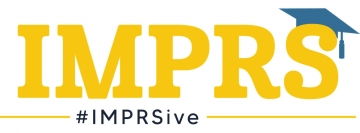Laura on extracurricular activities
Name: Laura Giglio
Department: Neurobiology of Language
Research: The neurobiology of sentence production
Started at the IMPRS: 2018
Nationality: Italian
How did you come to pursuing your research topic in Nijmegen?
During my Bachelor’s, I studied neuroscience at the University of Glasgow. That was a very stimulating program, but with too little focus on cognition, and I had always had a deep curiosity for language. So I decided to join the Cognitive Neuroscience Research Master at Radboud University, which opened an exciting world of research on really interesting and diverse topics. I decided to join the Neurobiology of Language department at the MPI for my master thesis already and then stayed for my PhD since it proved to be an inspiring group to be in, with a lot of interesting research going on and lots of opportunities to learn.
What are some of the highlights of your doctoral life so far?
Joining the IMPRS is probably one of the most enriching opportunities for PhD candidates in Europe: it’s not easy to find such an interdisciplinary and rich environment with so many people with similar interests in the language sciences yet coming from diverse scientific backgrounds. I remember going to my first conference abroad and being almost disappointed by the talks, because I had already been spoiled by so many fascinating talks by experts invited to the MPI. We also get the opportunity to learn about all sorts of methods if we wish, with well-structured toolkits and so many experts in neuroimaging and animal research at the Donders Institute and Radboud University Medical Centre. Nijmegen is also a little gem in the Netherlands, with so many international people and a really welcoming population (I never had problems with my lack of Dutch skills!). There’s a great climbing and bouldering scene, many concerts and several craft beers so it’s hard to get bored during the after-work hours, even if it’s a relatively small town.
Joining the organization of an event, being a PhD representative, or joining one of the many committees on lunch talks or science communication, can be a great experience to build team working skills that can be easily lost when working on our own project
What advice do you have for peers or those considering doctoral studies?
To make the most out of your PhD, I recommend taking advantage of the many opportunities to engage in extracurricular activities. For example, joining the organization of an event, being a PhD representative, or joining one of the many committees on lunch talks or science communication, can be a great experience to develop team-building skills that can be easily lost when working on our own project full-time. It’s a great time to learn who we are and where our (undiscovered) interests lie.


Share this page